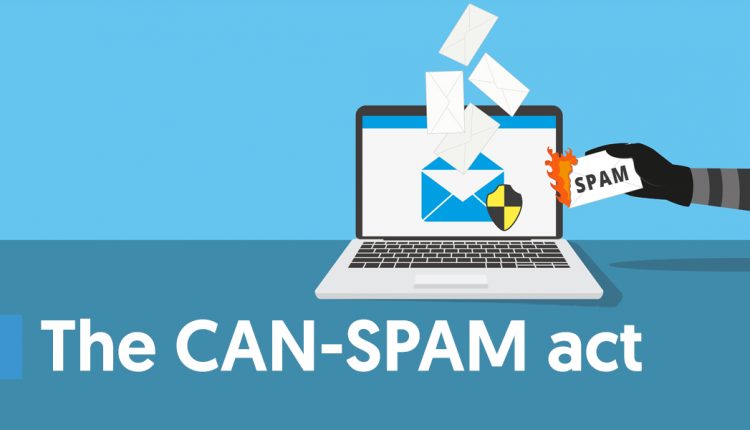If you send emails to people who haven’t invited you to do so, you could be breaking the law. There’s a law called the CAN-SPAM Act – which stands for Controlling the Assault of Non-Solicited Pornography and Marketing Act of 2003 — that regulates commercial emails.
This law gives people the right to unsubscribe to any emails they don’t want. So if somebody asks you to take them off your list, you not only want to do that because it’s good business, but because you may be subject to fines if you don’t do it. And the fines are per email violation, so they can add up fast.
To and From
This law also explains the requirements for what you can put in the subject line of your email, the “to” line and the “from” line, and other elements of email.
So if you buy leads from another marketer, it may seem like a quick way to build your list, but in reality it can be expensive, leads to lower conversion rates, can be harmful to your reputation. It can even subject you to being banned or paying fines.
Integrating with Your Autoresponder
On many of the autoresponder programs, when you try to plug in the leads that you have purchased, you are going to discover that you can’t easily plug them in. So you may have to enter them manually, which is time-consuming and — given the low conversion rate — probably not worth the effort.
There are some email companies, however, that do let you import leads that you have purchased. These include MailChimp and Imnicamail. Both require you to have the relevant opt-in data, however. When you import leads using these services and others like them, you have to make sure that the people have given the person you bought the leads permission to sell or give them to third parties.
In other words, you have to be able to prove that the leads have opted in to receive third party information. So that means in addition to the email address you also need to have the opt-in date, the website it was opted-in from, and so on.
Choosing a Reliable Vendor
Companies that sell leads legitimately are going to be able to provide you with all this information. Those that are less reliable are not. So if the leads you buy are accompanied by this critical information, that’s one indicator that you are getting high-value, legitimate sales leads for your money.
It’s important to ask for that information as well as the email addresses. If the person selling you leads doesn’t know what you are talking about, you probably shouldn’t buy leads from them.
When you buy email lists, many of the less reputable sellers are getting the addresses they sell you buy scraping them off old lists, picking them off web sites, and collecting contact lists from conferences. And some list sellers create their own squeeze pages and collect opt-ins, then turn around and sell them to other marketers.
The problem is that the people who opted-in did so for that company, not for yours. So when you contact them, they don’t know who you are and are more likely to mark you as a spammer.
Are They Organized?
Another problem is the way these lists are put together — hodge-podge, if you will — many of the addresses you receive are going to be misspelled, abandoned or even phony. This is actually really common, so the legitimate companies that sell lists will usually give you a refund for these types of addresses up front. That’s another indicator that you are buying from somebody legit.
So when your autoresponder sends out your emails to these addresses, they are going to be kicked back. This is also a red flag to email providers like Gmail and Hotmail and it could cause them to block all future emails from you. So you may have to start all over again.
Monitoring the social media marketing landscape is vital to your success. If you’d like to have access to even more powerful marketing tips, as well as a way to generate conversion-ready Internet marketing prospects each month, click here to learn about my done-for-you system.


